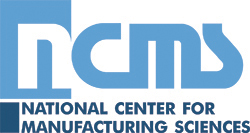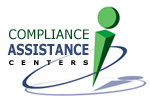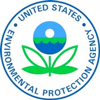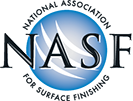| Presented in Partnership with: | |||
 |
 |
 |
 |
03/27/96
Bruce J. Tiejema
Divisional Environmental Engineer
Sealed Power Division
SPX Corporation
2001 Sanford Street
Post Office Box 1208
Muskegon, Michigan 49443
Re: Chromium Electroplating Emission Standard: Compliance Extension Request
Dear Mr. Tiejema:
On February 8, 1996, Sealed Power Division sent a Compliance Extension Request to the United States Environmental Protection Agency, (U.S. EPA), Region 5. Sealed Power Division (SPD) owns and operates several chromium electroplating tanks at two separate facilities which are subject to the National Emission Standards for Chromium Emissions From Hard and Decorative Chromium Electroplating and Chromium Anodizing Tanks (Chrome Plating NESHAP). The chromium electroplating processes are designated in your letter as: 1) SPD, Harvey Street, Muskegon (Harvey Street facility) and 2) SPD, St. Johns facility (St. Johns facility). Both facilities are hard chromium electroplaters which plate cast iron and steel piston ring components. The compliance provisions of this standard, 40 CFR Section 63.343, require that hard chromium electroplating tanks comply no later than January 25, 1997.
The compliance provisions of the Chrome Plating NESHAP also allow a source up to one additional year to comply with the standard. Under this provision, SPD has requested a compliance extension for one year for the two separate chromium electroplating processes located in Michigan. The Muskegon facility consists of twelve plating tanks which are currently equipped with twelve vertical packed bed scrubbers. The St. Johns facility consists of four plating tanks with four vertical packed bed scrubbers. SPD has requested a compliance extension to replace the existing pollution control devices that will enable SPD to comply with the Chrome Plating NESHAP.
SPD has outlined two options in the compliance extension request. Option 1 involves the use of kynar balls in the plating tanks to reduce the surface area of the tanks, thereby reducing the emissions. The second option is the installation of six composite mesh pad systems at the
Harvey Street facility and the installation of two identical systems at the St. Johns facility. If the first option fails to reduce the chromium emissions from the tanks to levels below the limitations found in the Chrome Plating NESHAP, Option 2 must be employed on an accelerated schedule. According to your submittal, there are several steps that SPD will take to ensure the installation of the emission control devices in a timely manner. These steps and the expected completion dates are as follows:
Procure, install and operate one pollution control device Fourth Quarter 1996
Engineering Design Third Quarter 1997
Procure and install additional devices Fourth Quarter 1997
On August 7, 1995, the U.S. EPA Administrator delegated the authority to grant compliance extensions to the Regions. Under this authority, Region 5 extends the compliance date for the Harvey Street facility and the St. Johns facility to January 25, 1998. Please note that this compliance extension is being granted only for the installation of emission control equipment designated in Option 2. As a condition of this compliance extension, in accordance with 40 CFR Section 63.6(i)(11), SPD shall submit monthly progress reports on the installation of the pollution control devices at both SPD locations. These progress reports shall be submitted, by the last day of each month, to: U.S. EPA, Region 5, Air Enforcement and Compliance Assurance Branch, 77 West Jackson Boulevard, Chicago, Illinois 60604, with a copy to Diane Kavanaugh, Air Quality Division, Michigan Department of Environmental Quality, Hollister Building, 106 West Allegan Street, P.O. Box 30260, Lansing, Michigan 48909. In conjunction with this compliance extension, the performance test required under 40 CFR Section 63.344 of the Chrome Plating NESHAP must be performed within 180 days after the termination of the compliance extension pursuant to 40 CFR Section 63.7(a)(1)(v).
If you have any questions related to this compliance extension, please contact
Karen L. Bell, of my staff, at (312) 353-8640.
Sincerely yours,
George Czerniak, Chief
Air Enforcement and Compliance Assurance Branch
cc: Diane Kavanaugh
Michigan Department of Environmental Quality
 |
 |
 |
 |
 |
| Home | Subscribe | Regulations | Compliance Assistance | News | Resources | Resource Locators | Directories | Online Training | About | Search | NASF.org |
The information contained in this site is provided for your review and convenience. It is not intended to provide legal advice with respect to any federal, state, or local regulation.
You should consult with legal counsel and appropriate authorities before interpreting any regulations or undertaking any specific course of action.
Please note that many of the regulatory discussions on STERC refer to federal regulations. In many cases, states or local governments have promulgated relevant rules and standards
that are different and/or more stringent than the federal regulations. Therefore, to assure full compliance, you should investigate and comply with all applicable federal, state and local regulations.